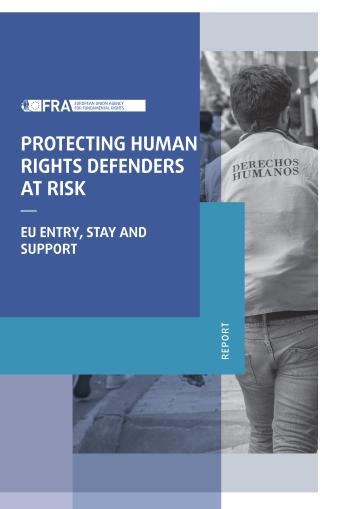Help us make the FRA website better for you!
Take part in a one-to-one session and help us improve the FRA website. It will take about 30 minutes of your time.
Foreword
Across the world, human rights defenders take action to protect and promote human rights. A crucial part of civil society, they work at the forefront of upholding human rights in the most dangerous environments.
Civil society is not just useful, I believe it is essential to respectful societies that uphold human dignity. Without civil society, we would not even have the foundations for such societies.
Civil society is the brave custodian of human rights. Civil society is the guardian of hope.
We need to protect civil society. We see worrying and growing levels of threat, intimidation and harassment. Nowhere is this seen more acutely than the risks facing human rights defenders from third countries. Many face threats and attacks simply due to the nature of their work. Too often, they risk their lives and the safety of their family. Worse still, in some countries, their work is criminalised, and they face arbitrary arrest, torture, executions and assassinations.
In 2022 alone, over 400 human rights defenders were killed because of their human rights work – and this is just the number of confirmed killings.
Working in human rights has become a dangerous vocation for some. At great personal expense, they do important work to uncover human rights abuses or investigate corrupt practices in hostile environments. Defenders want to stay and continue their work in their country, even when the pressure is great.
But when the risks are too high, staying is not an option.
Emergency visas can provide much needed instant relief. Simply knowing there is an ‘exit strategy’ is sometimes enough. Longer-term residency can help those in exile.
Current EU law does not explicitly protect human rights defenders. There is no common, consistent EU approach.
We must figure out how to better support civil society at risk. This new research offers recommendations on how Member States can use the flexibility in existing legal provisions and provide shelter for those who flee from third states. We cannot hope for a society in which human rights are respected if we do not support and protect those fighting for it.
Michael O’Flaherty
Director
